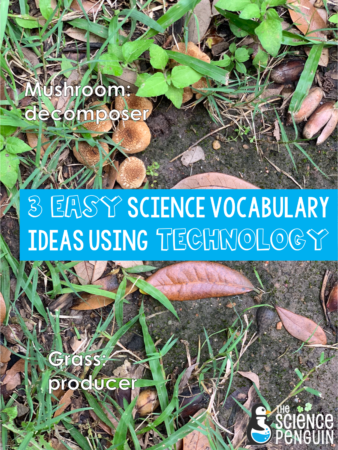
I know many teachers are scrambling to find effective methods of instruction for distance learning. I’d like to share some effective resources for teaching and practicing science vocabulary that you can use at school or at home.
1. Photos of Real-life Examples
Use a simple app such as Skitch, or even the Markup feature in Photos to show real-life examples of science vocabulary. Students can also label with a piece of paper then photograph that. Here are some ideas of what students might search inside and outside for.
Physical Science
-
- Forms of energy: mechanical, electrical, light, thermal, and sound
-
- Physical states of matter: solids, liquids, and gases
-
- Magnetic and non-magnetic objects
-
- Electrical conductors and insulators
-
- Objects that are less dense than water and more dense than water
-
- Changes in state of matter (melting, freezing, condensation, and evaporation)
-
- Interaction with light: transparent, translucent, opaque
-
- Mixtures: mixtures that maintain their physical properties and mixtures where the ingredients do not maintain their physical properties

Earth Science
-
- Examples of weathering, erosion, and deposition
-
- Weather instruments and conditions
-
- Natural resources: renewable and nonrenewable
-
- Examples of natural resources
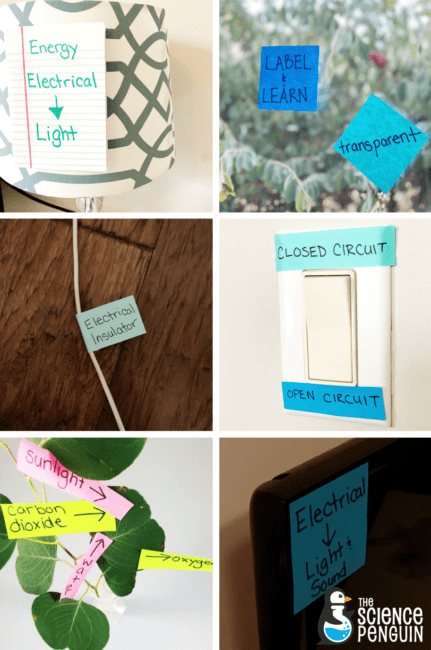
Life Science
-
- Parts of an ecosystem: communities, populations, species, ecosystem
-
- Inherited traits
-
- Structures and functions of animals and plants
-
- Various stages of organisms’ life cycles
-
- Consumers, producers, and decomposers
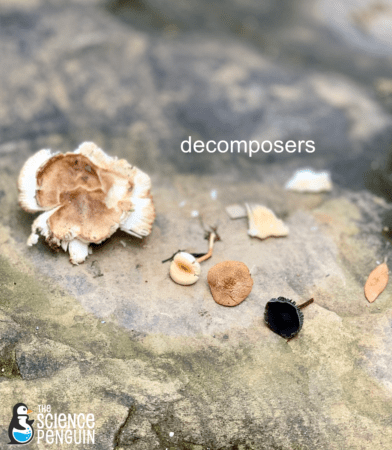
2. Scavenger Hunts with Photographs
These free scavenger hunts require no prep, just some space outdoors. Ask students to photograph and label what they find to share with you and the class.
Access the Free Resource Library! Scavenger Hunts
3. Digital Science Vocabulary Lessons
If you want to quickly and easily teach students new science vocabulary terms, I recommend the new Digital Science Vocabulary Lessons. Teachers are loving this.
First of all, it’s in Google Forms so all you have to do is send a link. As long as there is internet, they can complete it in their internet browser.
Even better, these digital lessons take about 15-20 minutes for students to complete. Each topic includes a Google Form with 5 sections. Students will watch short video clips, analyze a diagram or graphic organizer, and read a short text. There are multiple-choice questions to answer after each task.
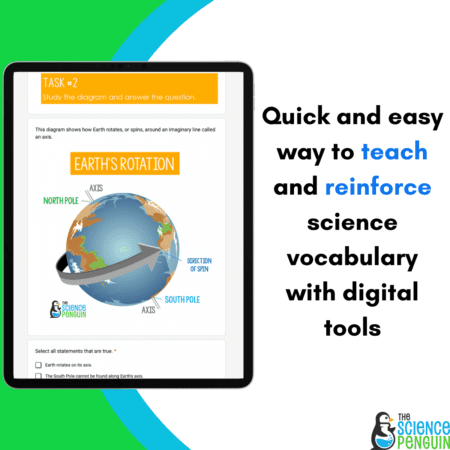
And the biggest thing teachers love– after they submit, their work will be auto-graded so you can check for understanding and provide feedback quickly.
Each activity includes a PDF with teacher directions and links to make a copy of the Google Form activity.
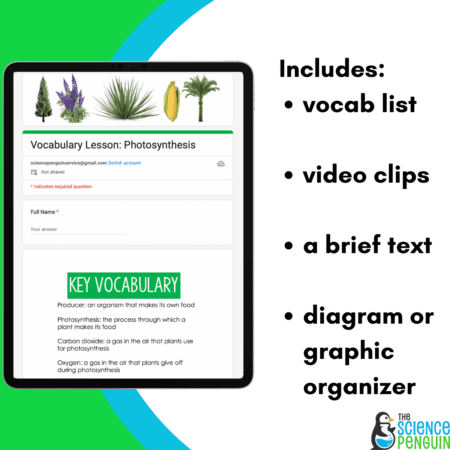
What Teachers Love About this Resource
-
- Simple directions for students to complete independently in 15-20 minutes
-
- Quality text, images, and video clips
-
- Auto-grading in Google Forms
-
- 10 multiple choice/checkbox questions throughout the assignment to check for understanding
-
- Send the link to students through your choice platform, email, or messaging
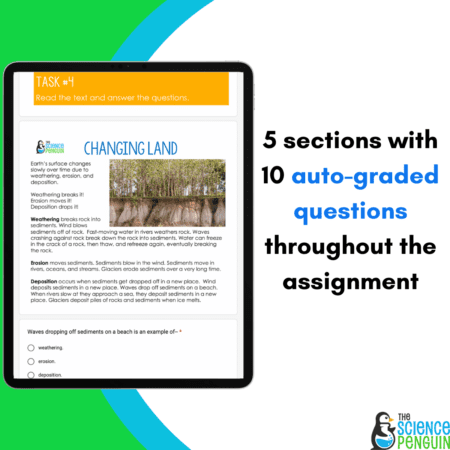
Try the Bundle!
See the bundle on TpT: Digital Vocabulary Lessons
23 Topics Included
Matter & Mixtures
2. Physical Properties of Matter
4. Mixtures
5. Solutions
Energy
4. Circuits
5. Force
Life Science
4. Adaptations
5. Heredity
Earth
1. Moon Phases
2. Slow Changes to Earth’s Surface
3. Rapid Changes to Earth’s Surface
5. Water Cycle
6. Soil
Bonus

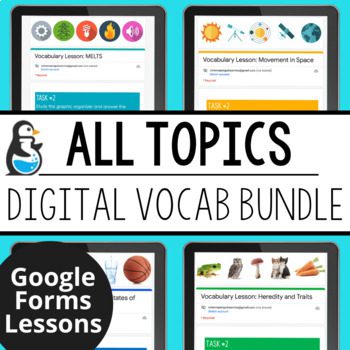
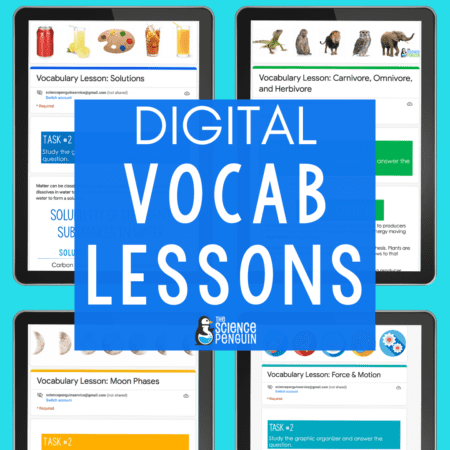
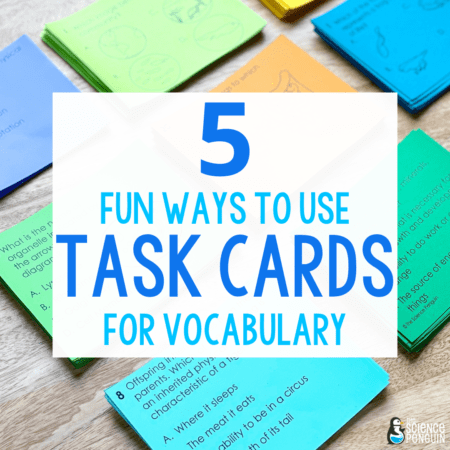


2 thoughts on “3 EASY Ideas to Teach Science Vocabulary with Technology”
I love the vocabulary scavenger hunt idea! Vocabulary is so important for students to learn, when it comes to introducing new science ideas and concepts. I think that showing students images of the real life connections to the vocal words in their everyday life is great, but allowing them to find them on their own through a scavenger hunt takes it to the next level! It allows students to have ownership of their learning and create connections that are personal to them and the things around them. I love the idea of sharing the images with the class after!
I really love your idea of a vocabulary scavenger hunt! There are so many instances where students should learn new science vocabulary that will help them learn a new concept. It is even better that it is an outdoor scavenger hunt so that students can make their own discoveries and learn through nature. You had some really awesome science activities that I will take with me in my future teaching!